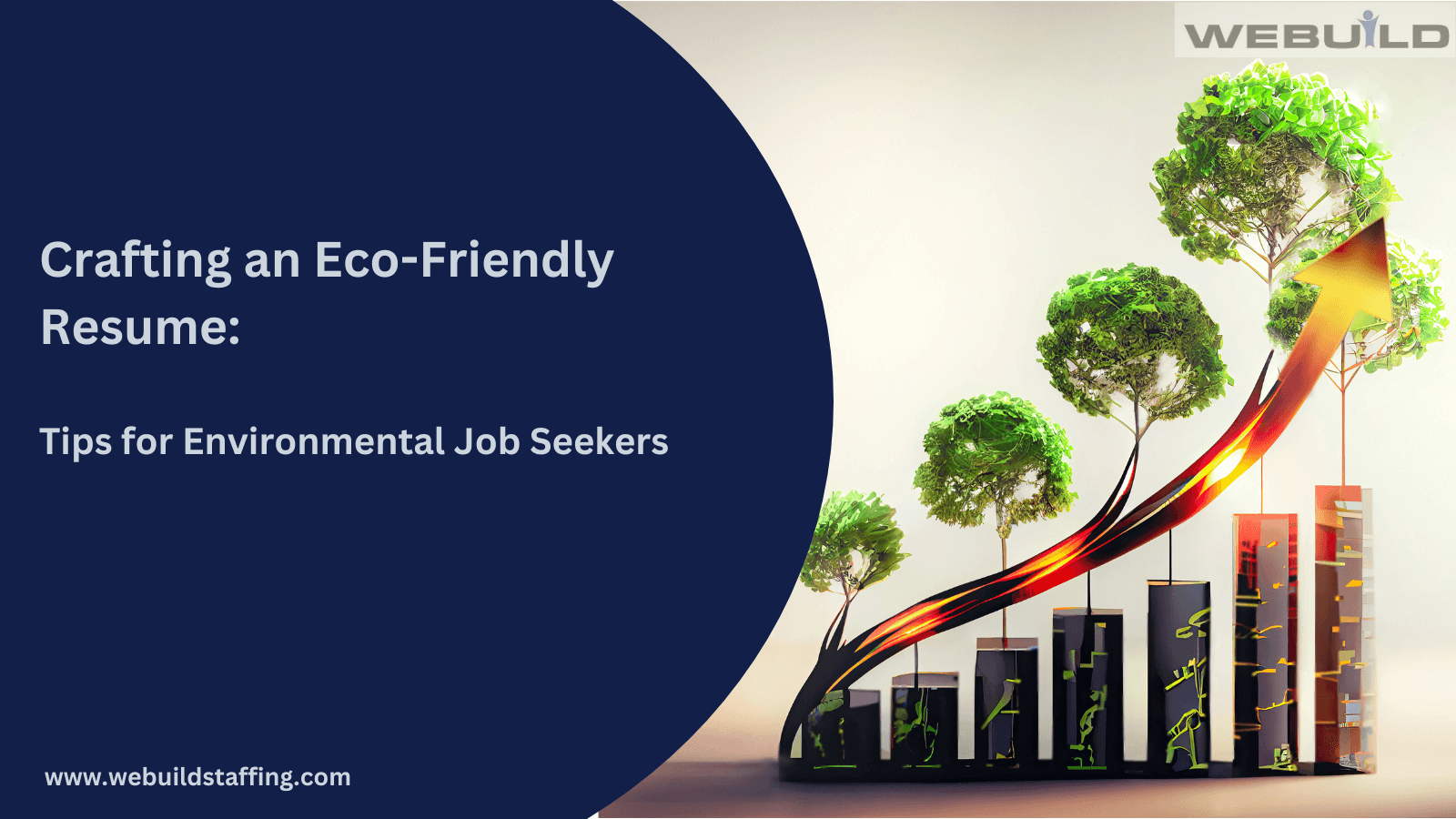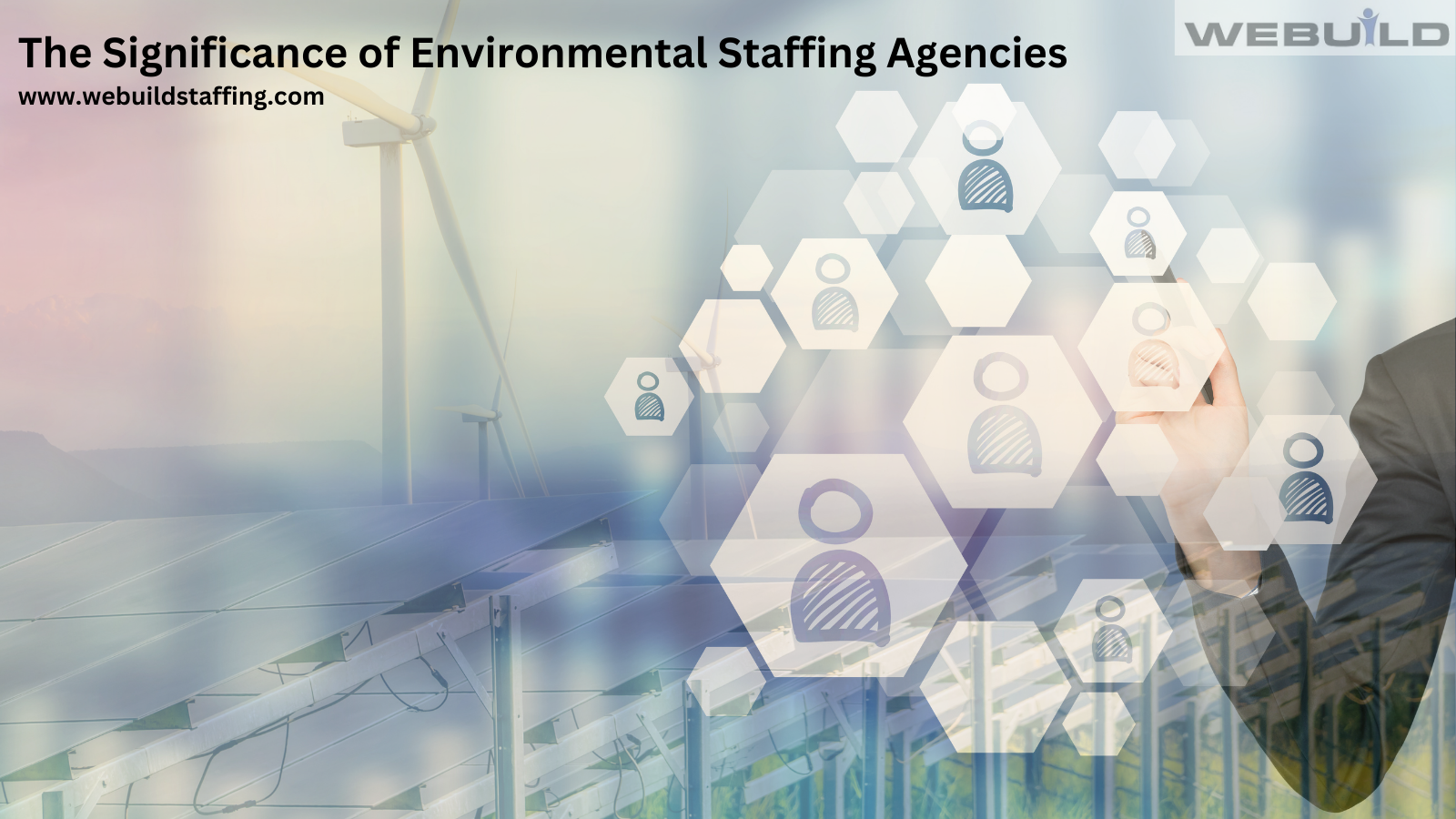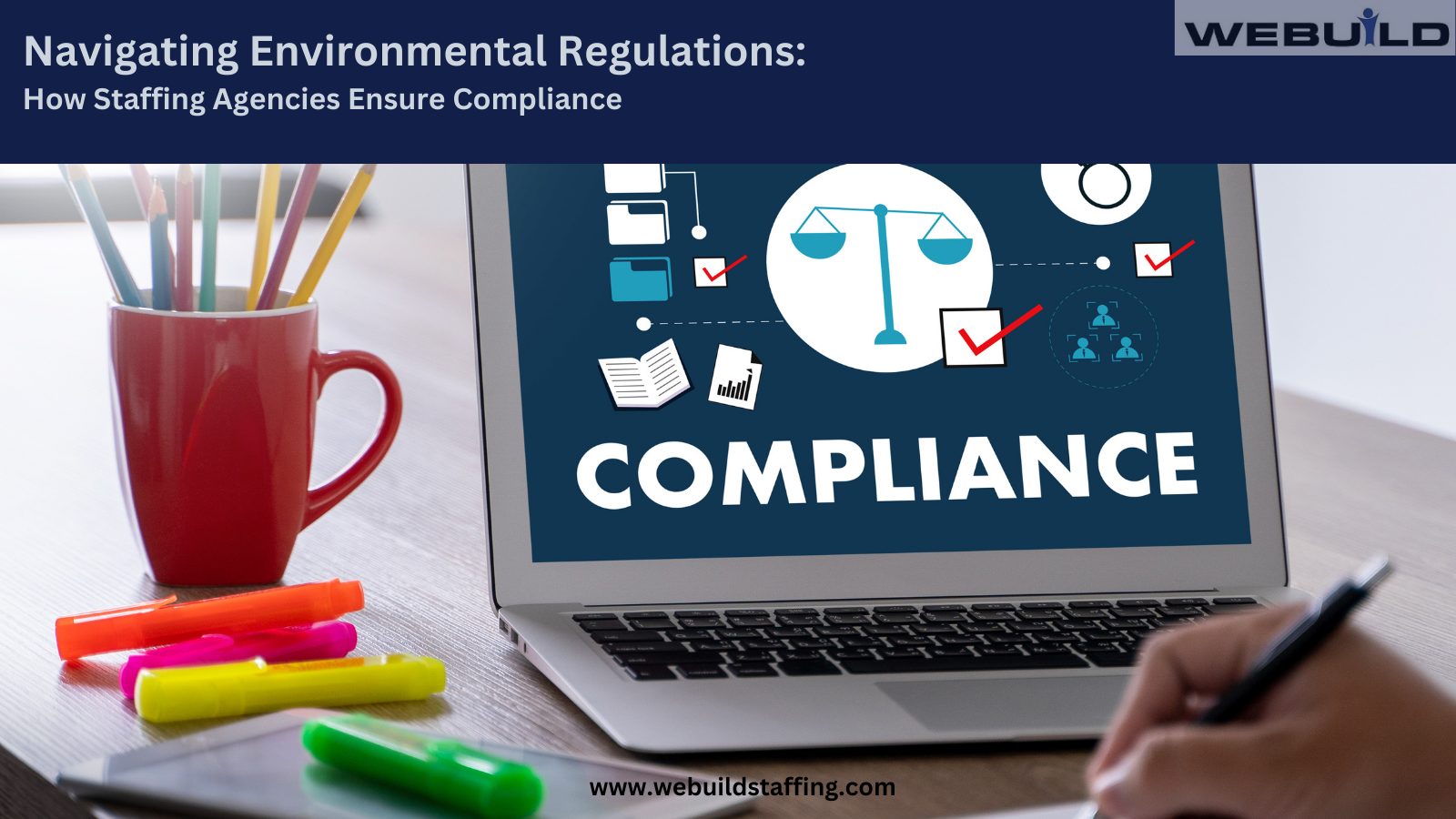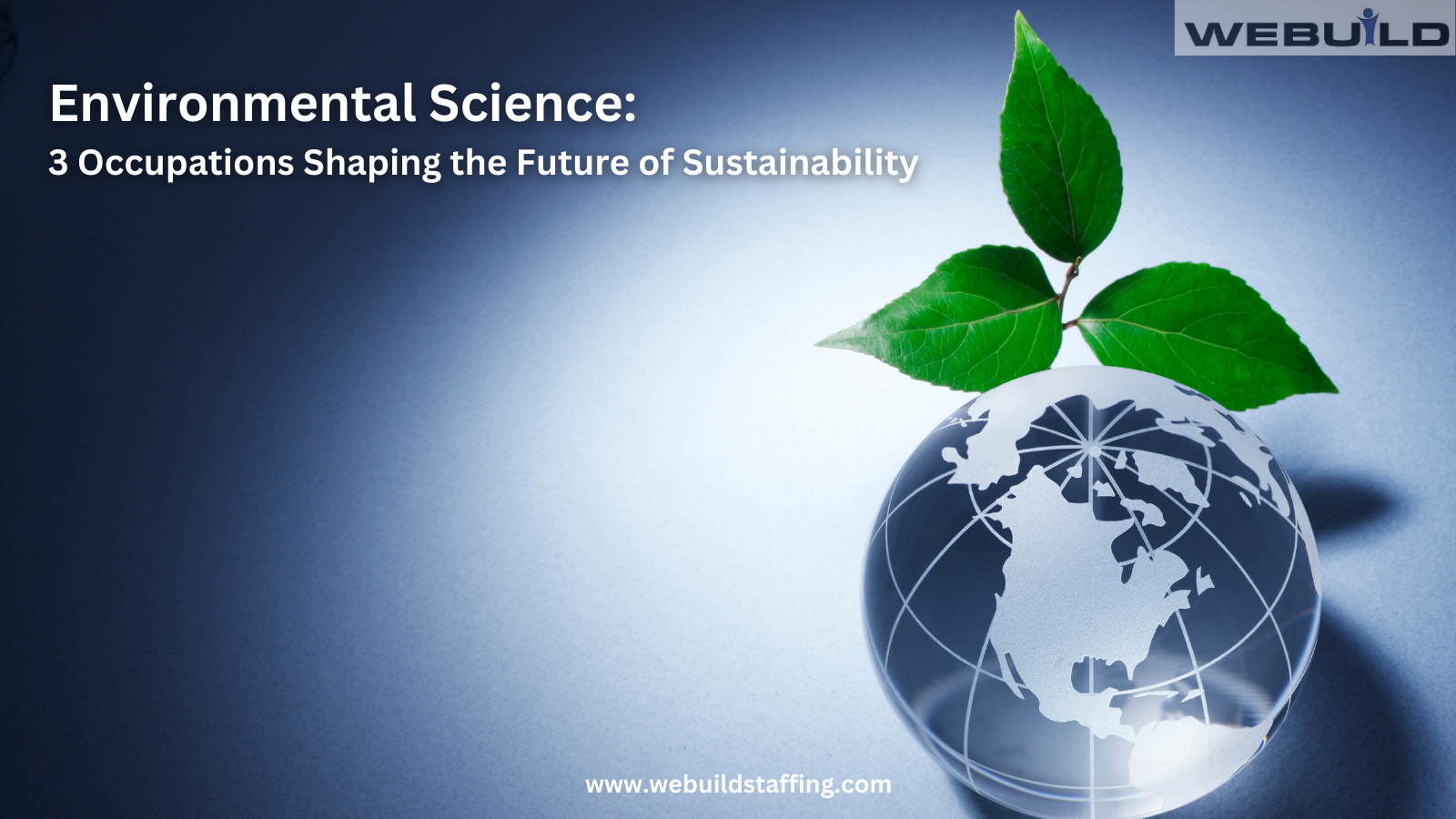Crafting an Eco-Friendly Resume: Tips for Environmental Job Seekers
WEBUILD STAFFING BLOG |
Crafting an Eco-Friendly Resume: Tips for Environmental Job Seekers

In today’s world, where environmental concerns are at the forefront of global consciousness, job seekers in the environmental sector face the challenge of not only showcasing their qualifications but also demonstrating their commitment to sustainability. Crafting an eco-friendly resume is the key to standing out in this competitive field and aligning your values with potential employers. In this comprehensive guide, we will explore the essential tips and strategies for creating a resume that not only highlights your skills and experiences but also emphasizes your dedication to environmental responsibility. Whether you’re a recent graduate or an experienced professional seeking to transition into the environmental industry, these tips will help you craft a resume that leaves a lasting green impression.
- Choose an Eco-Friendly Format: Start by selecting a clean, minimalist resume format that conserves space and reduces paper usage. Opt for a digital format when submitting online applications to eliminate the need for printing altogether. Formats such as PDF ensure your resume maintains its structure across different devices.
- Green Keywords and Phrases: Incorporate eco-friendly keywords and phrases into your resume. Use terms like “sustainability,” “environmental stewardship,” “renewable energy,” and “carbon footprint reduction” to demonstrate your commitment to green practices. This not only aligns your resume with environmental values but also helps your application stand out in keyword-based searches.
- Highlight Relevant Environmental Experience: Place your relevant environmental experiences, internships, and volunteer work prominently on your resume. Focus on accomplishments that demonstrate your impact, such as successful sustainability initiatives, energy efficiency improvements, or conservation projects you were part of.
- Quantify Achievements: Whenever possible, quantify your accomplishments. Use metrics to showcase the results of your environmental efforts. For instance, mention how you reduced a company’s waste production by a certain percentage or how you contributed to a project that resulted in a specific reduction in greenhouse gas emissions.
- Emphasize Sustainable Certifications: If you possess certifications or training in environmental fields, highlight them. Certificates like LEED (Leadership in Energy and Environmental Design) or Certified Environmental Professional (CEP) can significantly enhance your eco-credentials.
- Tailor Your Resume: Customize your resume for each job application. Carefully review the job description and requirements, then adjust your resume to highlight the skills and experiences that align with the specific position. This demonstrates your commitment and relevance to the role.
- Include Relevant Technical Skills: Environmental jobs often require specific technical skills. List software programs, laboratory techniques, or equipment operation skills relevant to the position. This can set you apart as a candidate who is ready to contribute from day one.
- Showcase Sustainability Leadership: If you’ve taken on leadership roles related to sustainability, such as leading a green team or spearheading an environmental project, make sure to detail these experiences. Highlight how you influenced change and promoted sustainable practices within your organization.
- Education and Environmental Coursework: Include your educational background, and if applicable, highlight relevant environmental coursework, research, or thesis projects. These academic experiences can demonstrate your knowledge and commitment to the field.
- Professional Associations: Mention any memberships in environmental or sustainability-related professional associations. This indicates your dedication to staying current with industry trends and networking with fellow professionals.
- Volunteer and Community Engagement: If you’re involved in eco-friendly volunteer work or community projects, include them on your resume. Environmental employers appreciate candidates who go beyond their professional duties to make a positive impact on the planet.
- Soft Skills: Don’t forget to showcase your soft skills, such as communication, teamwork, and problem-solving abilities. These qualities are highly valued in the environmental sector, where collaboration and innovative thinking are essential.
- References: Consider including references from individuals who can vouch for your environmental commitment and expertise. These references can be especially valuable in the green job market.
- Proofread and Edit: Finally, proofread and edit your resume meticulously. Typos and grammatical errors can detract from your professional image. An error-free resume demonstrates your attention to detail, a quality often sought in environmental professionals.
Crafting an eco-friendly resume is an essential step for environmental job seekers looking to make a meaningful impact on the planet while advancing their careers. By adopting a clean and sustainable resume format, incorporating green keywords, showcasing relevant experiences, quantifying achievements, and emphasizing your commitment to sustainability, you can create a compelling document that resonates with environmentally-conscious employers. Remember to tailor your resume for each application, highlight technical and soft skills, and include certifications, memberships, and volunteer work that demonstrate your dedication to environmental stewardship. With these tips, you can confidently pursue your dream green career and contribute to a more sustainable future.
Webuild Staffing Agency is a leading executive search and staffing agency dedicated to the construction, engineering and environmental industries. To learn more please visit: www.webuildstaffing.com










